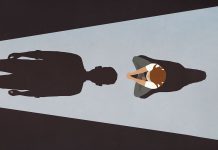Five decades ago, when the World Organization for Social Psychiatry was established, many thought it was a joke. Others, being more analytical, tried to prove that mental illness can only be an individual experience; that the problem always exists only in an individual and never in a group.
Social psychiatry investigates the influence of social conditions on the incidence and persistence of mental disorders. There are conditions, such as drug addiction and mental illness, that take over entire communities and can be treated effectively only with the participation of the whole community. For the founder of the World Association of Social Psychiatry, psychiatrist Joshua Bierer, social psychiatry was organically intertwined with the “therapeutic community.”
It is a disease and it does not discriminate
In his book, The Noonday Demon, Andrew Solomon provides a social map of depression, a disease that settles in all classes and social strata, affecting people regardless of age, gender, ethnicity, income or level of education.[1] The place in the social structure only influences the form of manifestation of the disease and the way of reacting to the disease, but the frequency of its appearance is the same, regardless of the social position of a group. The author himself is a fascinating illustration of this reality: the son of a prosperous businessman in the pharmaceutical industry, educated at Yale University, who travelled all over the world, from Africa to Greenland, a highly acclaimed novelist praised by The New Yorker and The New York Times, Andrew Solomon is also highly depressive.
Depression is not “an incomprehensible intellectual exaggeration,” it is not “a disease of the desire to receive attention,” it is not “an invention of the maladjusted,” it is not even “a whim of women.” These clichés have incredibly delayed its recognition as a mental illness (which occurred only during World War I, when combatants began to suffer from what would later be called “post-traumatic depressive syndrome”). Melancholy has had a similar history: it was known since the second century AD, but the therapeutic conception of physicians, intertwined with the moral judgments of philosophers, interfered with the development of a suitable treatment.[2]
Meaning and nonsense
Nevertheless, depression also has social causes, which is why I continue to consider it a “disease” of civilisation. Of course, in a clinical depression, the patient must be treated by specialists, and possibly by medication, as the disease always has physiological causes. Yet what I address in this article is depression not only as a medical illness, but also as a morbid condition, a dark malaise of the human spirit. I believe that the current offensive led by depression is related to the worst crisis that humanity has ever gone through: the crisis of meaning.
A few decades ago, Viktor Frankl wrote: “The existential vacuum manifests itself mainly in a state of boredom. (…) boredom is now causing, and certainly bringing to psychiatrists, more problems to solve than distress. And these problems are growing increasingly crucial, for progressive automation will probably lead to an enormous increase in the leisure hours available to the average worker. The pity of it is that many of these will not know what to do with all their newly acquired free time.”[3] Frankl illustrates his idea of ”Sunday neurosis.” He rightly observes that free time has grown at a rate that has surpassed people’s ability to learn how to use it for their humanisation or, as it is said today, for personal development. I like to think that this is just a favourable condition, not a cause.
The success of the book Man’s Search for Meaning is explained not only by the moral and professional authority of the author (Frankl was a Holocaust survivor and the inventor of logotherapy), but also through the “suffering of our times,” as Frankl himself says in the preface to the 1984 edition. This suffering is a result of a generalised lack of meaning to life. “If hundreds of thousands of people reach out for a book whose very title promises to deal with the question of a meaning to life, it must be a question that burns under their fingernails.”[4]
Who is better qualified to address this issue: a doctor or a philosopher? A scientist or a priest? At one point, Viktor Frankl raises this very question: “Let us now consider what we can do if a patient asks what the meaning of his life is. (…) I doubt whether a doctor can answer this question in general terms. For the meaning of life differs from man to man, from day to day, and from hour to hour.”[5]
That is why we can say that we are not facing a scientific problem, but a philosophical problem and, ultimately, a religious problem. As I will show below, the meaning of life is linked to our worldview, from which our concept of life and its purpose derives—and from which derives, in turn, a system of principles and rules about how we should live (ethics). In The Sane Society, Erich Fromm enumerated the needs of human nature as follows: the need for a unitary picture of the world, the need for emotional security, the need for devotion, and the need for meaning in life.[6] I believe that there is more than unity between these needs; they are interdependent: a unitary (non-contradictory) view of the world gives the individual a clear picture of his place in it and, derived from this, a sense of his purpose in this world—that is, meaning to his own life. At the same time, the need for meaning in life nourishes the need for a worldview, but also the need for security and devotion. It is this a harmonious unity that we find in the psyche of a Christian.
Why do people find it so hard today to find meaning in their lives? Not necessarily because they no longer believe in God. It is known that many atheists found meaning in the “transformation of the world”: the French Revolution brought to the fore exceptional people, who put their lives at the service of social progress, as they understood it; in the early years of the Bolshevik Revolution, millions of women and men gave meaning to their lives by “participating in history,” believing that they would make “a better and more just world,” the equivalent of Heaven on Earth. The great problem of our age seems to be the loss of relevance of all ideologies that contain a general conception of the world and that propose an ethic.
It is well known that modernity was born with the great secular ideologies, usually perceived as alternatives to the Christianity of the Middle Ages. But only another universalist and exhaustive vision could oppose itself to Christianity, which is itself a universalist religion. Indeed, secular ideologies offered a different worldview and a different picture of man’s place in the world, but they all had the same claim to universality. The overall picture they proposed was equally comprehensive: it explained the origins of the world and of man, described their evolution, and prescribed rules of life for the harmonisation of man with the world.
That is why I claim that the great ideologies of modernity were also eschatologies—this time secular ones—being forced to postulate a meaning of history without which they could not offer meaning to life. At the same time, they wanted to be “realised”, and for their passage into reality they turned to “subjects in large format”, true heroes of universal history: peoples or social classes. That’s why Lyotard calls them “grand narratives”[7]. All these “legitimating narratives” contain a theory of existence (ontology), a theory of knowledge (gnoseology/epistomology), a theory of values (axiology) and an ethic; most contain a “sociology” and a “political science”, and some propose a “pedagogy”.
Their exhaustive character allowed them to participate in the process of social legitimation with the same magnitude as historical Christianity had done in premodern societies and as tradition had done in archaic societies. Through it, the “grand narratives” satisfy fundamental needs: the unitary picture of the world, emotional security, devotion and the meaning of life. Referring to “all elaborate systems,” Erich Fromm wrote: “Whatever their content, they all respond to man’s dual need of having a system to support his thinking and an object of devotion to warrant the significance of his existence and his situation in the world.”[8]
It can be said that the great ideologies have functioned, until recently, as symbolic vaults for human communities, for entire societies. They thus took over from tradition and historical Christianity, being the main sources of social recognition and respectability (including self-recognition and self-respect). At the same time, they generated a meaning of life and, in the happiest cases, even the joy of living (joie de vivre). But the history of the twentieth century has falsified these “grand narratives,” which most people no longer believe in and which no longer function as an instrument of legitimation. Perhaps this alone could simply be the result of the application of utopian scenarios in life. In any case, two world wars were fought on their behalf; that is, two massacres of universally unprecedented proportions took place. Because of them, mankind had a Holocaust and a Gulag—the mass extermination of some people by other people, who considered the former either inferior or dangerous, in terms of their own ideology. In the 21st century, to believe in such “narratives” you have to be either naïve or uninformed.
That is why I say that depression is also a social disease, and its recent advance is a product of civilization. At its origin is the crisis of the meaning of life, and this is caused by the generalisation of nihilism, as the background ideology of our times. In Ivan Turgenev’s 1862 novel, Fathers and Sons, we find a definition of the nihilist that should make us think: “A nihilist is a man who does not bow down before any authority, who does not take any principle on faith, whatever reverence that principle may be enshrined in.” The most important component of nihilism is anti-authoritarianism: “I do not see why I should recognise the authorities and bow before them,” says Bazarov, the first declared nihilist in universal literature. In nineteenth-century Russian society, people like Bazarov were extremely rare exceptions, exotic flowers that intrigued and fascinated alike. Today, I fear that this human type tends to be the rule. What has happened to human beings in the last 150 years?
Where does the crisis come from?
After all, it is about the loss of a system of motivations, which Romanian writer Gabriel Liiceanu, in The Forbidden Door (2010), insightfully calls “system of illusions” and compares it with an airbag meant to cushion the brutal collision between the self and an amoral, tasteless, colourless and odorless reality that is indifferent to our ideals. Liiceanu masterfully describes the state of paralysis caused not by fear, laziness or a lack of will (as in Oblomov, the famous character of Ivan Goncearov) but by the lack of meaning: the illusions he had made after the 1989 Romanian Revolution and the corresponding disappointments. These experience brought the author into a state of not being able to get up from his armchair: “But I can’t even get up. I can’t get to bed to mimic the state I’d like to be in.”[9]
As we will see, a clinical explanation is not sufficient in the absence of a philosophical one: “Doctors call this state a depression. I understand it better as a disaggregation of the system of illusions by virtue of which we move forward, act, agitate, shape the next moment and tomorrow. (…) This is how the meaning of our life is born. But we are the ones who secrete the food we sniff incessantly, with each new day beginning, and it is this uninterrupted manufacturing process of the ‘system of illusions’ that warrants our mental health.”[10] After describing, across three pages, the state of disintegration, Gabriel Liiceanu concludes: “Depression is the insurrection of the unseen. The surface, the seat of splendor, is constrained to abdicate. The rule is now of the deep, of nothingness, of the abyss, of all that had hitherto been lurking.”[11]
I believe that a system of beliefs and hopes must define every healthy person. The absence of faith and hope is sickening and, at its limit, lethal; it can lead to depression and hence, to an almost fatal confusion, or even to suicide. But we need to distinguish between hope and faith, on the one hand, and illusions, on the other. Perhaps this is the main difference between the depressed reaction of the disillusioned and the balanced attitude of the one who maintains his faith and hope, from which he also derives his vital, healthy motivations. From that inner “valley of the shadow of death,” the dark mind of disappointments and the soul emptied by meaninglessness, one can emerge only through a strengthened faith. Where can man get this strength? I think it’s enough to cry out sincerely to Him, to use the strength of his feelings and emotions, even negative ones, only to do it sincerely: if it is despair, with despair; if it is fear, with fear; even if it is unbelief, with unbelief. Someone cried out to Jesus, “Help me overcome my unbelief!” And he was helped.
Dumitru Borţun is a university professor at the Faculty of Communication and Public Relations, part of the National School of Political and Administrative Studies (SNSPA).



















